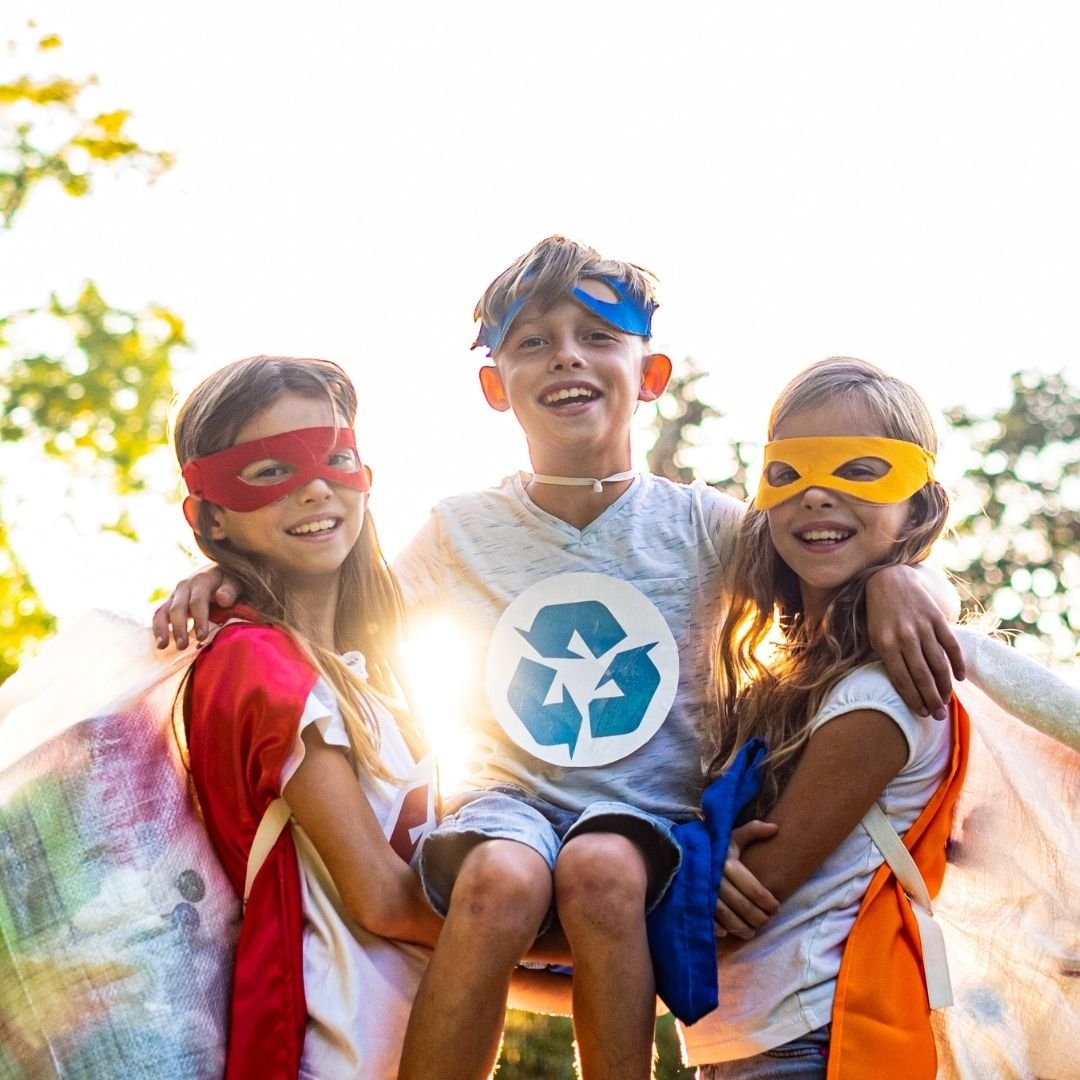
Family eco living? With a plan, you can
We all have a part to play in building a greener future and want our children to be ready for it when the time comes for them to take the lead. But it’s not always easy for us as parents and teachers to know how best to involve children. Our sustainability expert, Sarah Walkley looks at ways children can help us all embrace a greener lifestyle and it all starts with a plan. Here are six tips to get you started.
Our new team member and sustainability expert, Sarah Walkley looks at ways children can help us all embrace a greener lifestyle.
We want our children to grow up with a deep love for the planet. We all have a part to play in building a greener future and we want them to be ready for it when the time comes for them to take the lead. But it’s not always easy for us as parents and teachers to know how best to involve children.
Cycle more. Recycle more. Waste less. Buy less… There’s so much we could be doing. Where should you start?
One option is to sit down as a family and create a family eco-living plan. Here are six tips to get you started.
1. Let your children set the goals
Encourage your children to set the challenges. Whether it is cycling to school more often or reducing how much single-use plastic the family buys, if your children have been involved in setting the goal, they’ll also be more enthusiastic about achieving it. They may also surprise you with how ambitious they are. They might be keen to cycle to school, even if it seems a bit far away.
2. Adjust one thing at a time
Choose one thing that you can do to reduce your family’s impact – always take a refillable water bottle with you or refuse straws in any café you visit. It’s much easier and more motivating to do one thing consistently and well. Once it has become a habit, add on more changes.
3. Pick a theme
Have a focus, whether it’s reducing plastic or waste, shopping more locally, or helping bees to thrive. It helps to pick a series of related actions that build up to a bigger impact overall. Again, it gives children the chance to make an impact in an area that they really care about.
Need inspiration? Our calendar of Environmental Awareness Days gives you an idea of what’s coming up. How could you celebrate National Bike to School Week both before and during the event?
4. Talk about the co-benefits
Whatever change you are looking to make, it’s going to be good for the planet. But are there other benefits? Talk about how cycling to school or having more vegetables and less meat is good for the family’s health. Turning the lights off or throwing less food away could save a bit of money that could be spent on that next day out. If one small change has many benefits, that change is more likely to stick.
5. Make it fun and rewarding
Can you make going green a game? If your challenge is to take a refillable water bottle with you wherever you go, can you turn looking for a refill station or a water fountain into a treasure hunt. Look for apps that help, like the Refill app which tracks all the UK’s refill stations. Your little ones will learn other useful skills like map reading in the process – great for future outdoor adventures.
We have a FREEawards chart for your little eco-heroes available to download or why not make a chart for your family green plan? Dad can get points too for taking out the recycling! If you want a bit more, then take a look at our eco-subscription boxes; a Tool Kit For Eco Heroes.
6. Put them in charge
Children have a remarkable way of keeping us honest. And nowhere more so than when it comes to eco-living. Our children have the benefit of growing up learning about nature and climate at school. They know when we have put a cup or plastic bottle in the wrong bin. Get them to call it out. It may just mean we don’t have quite so many stars on the awards chart.
Sarah Walkley is a freelance writer and researcher on a mission to empower everyone to play their part in addressing climate change and nature loss.
She set up Purplefully to help organisations develop their sustainability strategy and communication.

